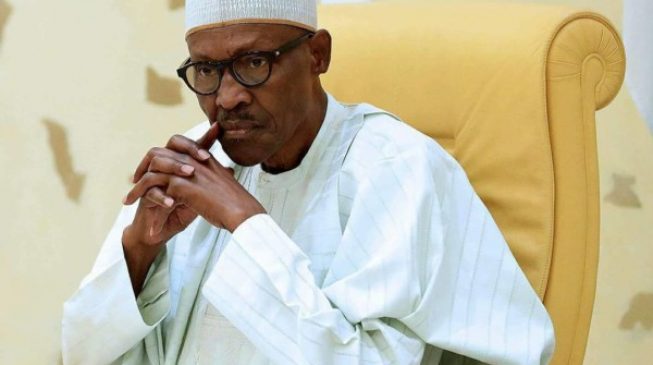President Muhammadu Buhari has again declined assent to the Electoral (Amendment) Bill, 2018.
The Senior Special Assistant to the President on National Assembly Matters, Senator Ita Enang, said this on Monday in a statement titled, ‘Presidential decision to decline assent to Electoral (Amendment) Bill 2018.’
The development comes less than six months after the President rejected the first one.
According to Enang, the President has already communicated his decision in letters sent to the two chambers of the National Assembly.
Enang said the President was declining assent to the bill due to some “drafting issues that remain unaddressed following the prior revisions to the bill.”
The statement added, “There is a cross-referencing error in the proposed amendment to Section 18 of the Bill. The appropriate amendment is to substitute the existing sub-section (2) with the proposed subsection (1A), while the proposed sub-section (1B) is the new sub-section (2A).”
The President’s aide said there was also an issue with the conduct of primaries by political parties and the dates they should submit names of their candidates to INEC.
Enang said if signed into law as it is, INEC would have only nine days to collate and compile lists of candidates in the 91 political parties.
He said, “The proposed amendment to include a new Section 87 (14) which stipulates a specific period within which political party primaries are required to be held has the unintended consequence of leaving INEC with only nine days to collate and compile lists of candidates and political parties as well as manage the primaries of 91 political parties for the various elections.
“This is because the Electoral Amendment bill does not amend sections 31, 34 and 85, which stipulates times for the submission of lists of candidates, publication of lists of candidates and notice of convention, congresses for nominating candidates for elections.’’
He noted that Clause 87 (14) “states that the dates for the primaries shall not be earlier than 120 days and not later than 90 days before the date of elections to the offices” which is at variance with Section 31 of the Electoral Act 2010.
Section 31 of the Electoral Act 2010 states, “Every political party shall not later than 60 days before the date appointed for a general election submit to the commission the list of candidates the party proposes to sponsor at the elections.
Section 34 of the Act adds, “That the commission shall at least 30 days before the day of the election publish a statement of the full names and addresses of all candidates standing nominated.”
Citing Section 85 (1) of the Electoral Act which states that a party shall give the commission at least 21 days’ notice of any convention, congress etc., for electing members of its executive committees or nominating candidates for any of the elective offices, Enang said this was at variance with the bill proposed by the National Assembly.
He said since the constitution did not empower a President or governor to whom a bill was forwarded by the legislature to edit, correct, amend or in any manner alter the provisions of any such bill to reflect appropriate intent before assenting to same, Buhari had no choice but to return it to the National Assembly.
Enang called on the National Assembly to quickly rectify the necessary sections and return the bill to the President for assent.
Others bills which Enang said the President had communicated action to the National Assembly include: National Agricultural Seeds Council Bill, 2018; the Advance Fee Fraud and Other Related Offences (Amendment) Bill, 2017; and the Chartered Institute of Entrepreneurship (Establishment) Bill, 2018.
Others are: The Subsidiary Legislation (Legislative Scrutiny) Bill, 2018; National Institute of Hospitality and Tourism (Establishment) Bill, 2018; National Research and Innovation Council (Establishment) Bill, 2017; and the Nigerian Maritime Administration and Safety Agency (Amendment) Bill, 2017.
The President, had in March refused to sign the electoral amendment bill. In a letter to the President of the Senate, Bukola Saraki, and the Speaker of the House of Representatives, Yakubu Dogara, he explained why he did not sign the bill.
The Punch

 News6 years ago
News6 years ago
 Featured6 years ago
Featured6 years ago
 Boss Picks6 years ago
Boss Picks6 years ago
 Headline6 years ago
Headline6 years ago
 Headline5 years ago
Headline5 years ago
 Headline6 years ago
Headline6 years ago
 Headline6 years ago
Headline6 years ago
 Headline6 years ago
Headline6 years ago














